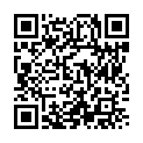Routine IT maintenance on Wednesday, December 17 will cause service interruptions between midnight and 6:00am affecting the YourHealthNS app and on-line appointment booking including COVID-19 testing, blood collection, X-Ray, EKG and the Need a Family Practice Registry. We apologize for any inconvenience.

We invite everyone who is eligible Nova Scotia to get a free COVID-19 vaccine to protect yourself, your family and your community. These vaccines are safe and effective for everyone 6 months and older.
More information about seasonal vaccines and booking appointments can be found at www.nshealth.ca/seasonal-vaccines.
Who is eligible for a COVID-19 vaccine now?
People aged 6 months and older can now book their COVID-19 vaccine for the fall/winter season.
How many doses do I need?
Most people aged 5 and older can get one initial dose of the updated COVID-19 vaccine to be fully immunized. Those aged 6 months to 4 years need two doses to be fully protected. People who are moderately to severely immunocompromised need an extra dose as compared with others in their age group.
Additional doses strengthen your protection against current strains of COVID-19 and boost your protection, as immunity decreases over time. Those who are eligible are invited to get an updated COVID-19 vaccine this fall.
Jump to:
- What vaccines are available?
- Recommended intervals between doses
- Vaccine Eligibility After COVID-19 Recovery
- Getting the COVID-19 vaccine at the same time as other vaccines
- How to access your COVID-19 vaccine proof of vaccination
- Allergies Pregnancy and breastfeeding
- Immunocompromised status
- Medical Contraindications to COVID-19 vaccination
- What to expect at your vaccine appointment
What vaccines are available?
Nova Scotia is offering mRNA vaccines for people aged 6 months and older. Novavax is not available in Canada this year.
Any of the COVID-19 vaccines available in Nova Scotia can be used even if you received another product in the past.
Learn more about mRNA vaccines.
Recommended intervals between doses
Primary Series
Ages 6 months to 4 years: 8 weeks (56 days) are needed between the two primary series doses. Children who are moderately to severely immunocompromised will need an extra dose to complete their primary series. The time between the first and second dose is 4 weeks (28 days) and the time between the second and third dose is 8 weeks (56 days).
Ages 5 and older: Only one dose is needed for a primary series; however people who are moderately to severely immunocompromised will need a second dose to complete their primary series. The time between the two doses is 8 weeks (56 days).
Additional doses
Ages 6 months and older: The recommended time between doses of COVID-19 vaccine is 6 months. However, a shorter interval of at least 3 months may be used.
Vaccine availability varies by time of year. Check “who is eligible for a vaccine now” above for details.
Vaccine Eligibility After COVID-19 Recovery
Vaccination after a known COVID-19 infection (also known as hybrid immunity) helps improve the immune response and provides better and longer-lasting protection than infection or vaccination alone.
- If you need your first dose, you should wait at least 8 weeks after recovering to get the vaccine.
- If you are due for an additional dose, it is recommended that you wait 6 months after recovering or your last COVID-19 immunization (whichever is later). However, a shorter interval of at least 3 months may be used.
Getting the COVID-19 vaccine at the same time as other vaccines
It is safe for people aged 6 months and older to receive a COVID-19 vaccine at the same time as another vaccine, or at any time before or after other vaccines. Receiving your COVID-19 and influenza vaccine at the same time is safe and convenient. If your provider is offering both vaccines, book them both in the same appointment.
Find out how to book your seasonal vaccines.
How to access your COVID-19 vaccine proof of vaccination
You can access your COVID-19 vaccine record on VaxRecordNS by logging into yourhealthns.ca/records or going to the records section of the YourHealthNS app. You can also get your COVID-19 proof of vaccine on this website.
Allergies
A confirmed allergy to COVID-19 vaccines is rare. If your healthcare provider has questions about allergies and COVID-19 vaccines, they can contact an allergist.
Pregnancy and breastfeeding
The National Advisory Committee on Immunization (NACI) strongly recommends that people who are pregnant stay up to date on their mRNA COVID-19 vaccines. Getting vaccinated at any point during your pregnancy helps protect you and your baby.
It is safe for you and your baby to be vaccinated while you are breastfeeding/chestfeeding.
Immunocompromised status
If you are immunosuppressed from disease or treatment, you may have a reduced immune response to any COVID-19 vaccine. Visit COVID-19 vaccine information for people who are immunocompromised for more information.
Medical Contraindications to COVID-19 vaccination
Medical contraindications against COVID-19 vaccines are limited, and include:
- a history of severe allergic reaction (e.g. anaphylaxis) after previously getting a COVID-19 vaccine using a similar platform (mRNA or viral vector)
- an allergy to any part of a specific COVID-19 vaccine or its container [polyethylene glycol (PEG) for Pfizer and Moderna COVID-19 vaccines]
As a precaution, the National Advisory Committee on Immunization (NACI) recommends that people who experienced myocarditis and/or pericarditis after a first dose of an mRNA COVID-19 vaccine should wait to get their next dose of mRNA vaccine until more information is available.
If you have a history of myocarditis or pericarditis and are still being followed by a doctor for related heart issues, please follow up with your healthcare provider before receiving the vaccine.
Nova Scotians who are concerned about their personal medical history and the available mRNA vaccines should speak with their healthcare provider.
What to expect at your vaccine appointment
Preparation
- Wear a short-sleeve shirt or a top with sleeves that are easy to roll up.
- To prevent feeling faint while being vaccinated, have something to eat before coming to the clinic. It is also important to drink water and stay hydrated.
- Bring a mask to wear while you’re in the building.
- Bring your health card and vaccine record, if you have them.
- All clinics are wheelchair accessible.
- Please do not come to the clinic if you are not feeling well. You will not be allowed in and will need to reschedule your appointment.
Afterwards
- Stay in the clinic for 15 minutes after getting the vaccine. You may be asked to wait for 30 minutes if there is concern about a possible vaccine allergy.
- Tell a healthcare provider at the clinic if you feel unwell while waiting. Be sure to leave your mask on and stay at least two metres away from anyone who is not part of your household.
- Use the alcohol-based hand sanitizer to clean your hands before leaving the clinic.
Side effects
- Side effects are common and can show the vaccine is working to produce protection in your body.
- Side effects may make you feel unwell for 1 to 3 days. The most common side effects of the COVID-19 vaccines are:
- soreness / redness / swelling where you received the needle
- headache
- muscle or joint pain
- chills or fever
- It can help to place a cool, damp cloth or wrapped ice pack where the vaccine was given. If you need it, pain or fever medication (such as acetaminophen/Tylenol or ibuprofen) may help with pain or fever.
- If you have any concerns about the symptoms you develop after getting the vaccine, contact your health care provider for advice.
Symptoms of a possible allergic reaction:
- hives
- swelling on the face, tongue or throat
- difficulty breathing
Serious side effects after getting the vaccine are rare. However, if you develop any serious symptoms that could be an allergic reaction, call 911 right away.



